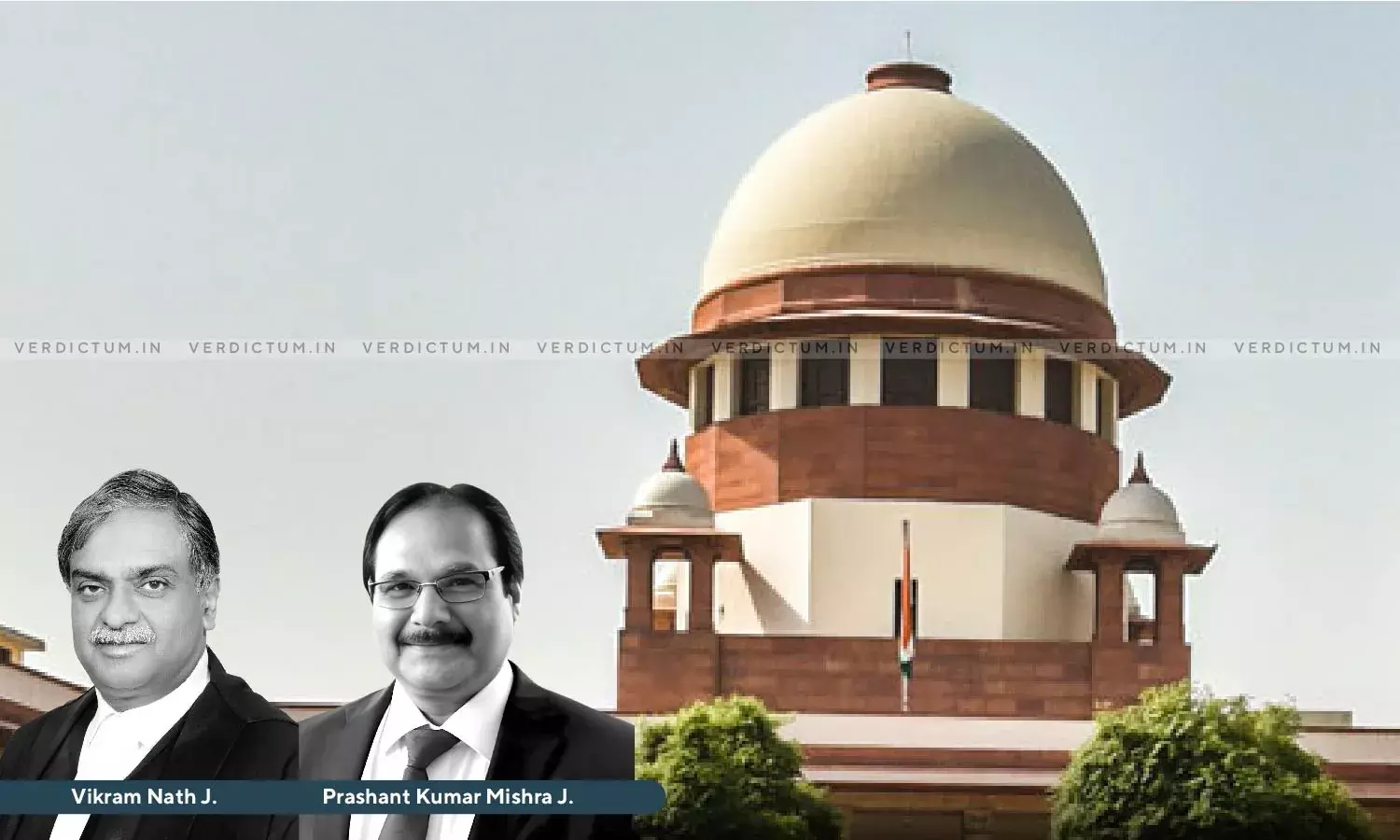No Sympathy With Purchasers Of Property Based On Will 'Shrouded With Suspicion' Not Entitled To Benefit U/S 41 TP Act: Supreme Court
The Supreme Court has observed that purchasers of property based on a Will “shrouded with suspicion” were not entitled to the benefit under Section 41 of the Transfer of Property Act, 1882 (TPA).
The Court stated that once a will was proved invalid, there could have been no right accrued in favour of the party to receive any right, title or interest under the Will regarding the property.
A Bench of Justice Vikram Nath and Justice Prashant Kumar Mishra observed, “Once the High Court had held that the Will dated 12.12.1988 was genuine and bona fide and duly proved and, further that the Will dated 16.05.1994 was not a valid document being shrouded with suspicious circumstances, there was no occasion for the High Court to have shown any kind of sympathy with the purchasers i.e. defendants. Once the Will itself was held to be invalid, no right accrued in favour of defendant no.1, and if defendant no.1 did not receive any right, title or interest under the Will, there was no question of defendants 2, 4 and 5 getting any better right, title or interest than defendant no.1 their vendor.”
AOR Shiv Sagar Tiwari appeared for the appellant, while Sr. Advocate Bimal Roy Jad represented the respondents.
The plaintiff was in continuous possession of the suit land which was bequeathed to him through a registered will. However, the defendant, based on another will, got his name mutated in the revenue records and transferred the suit land in favour of other defendants.
The Trial Court dismissed the plaintiff’s suit instituted for a decree of declaration with consequential relief of permanent prohibitory injunction that he was the owner in possession of land in dispute and that the defendants had no right or title to it.
Aggrieved by the same, the plaintiff preferred an appeal before the Appellate Court which decreed the suit against defendants. It was held the first will was a valid one which proved that the plaintiff was in possession of the land in question, while the second will was “surrounded with suspicious circumstances and as such could not be relied upon.”
The Himachal Pradesh High Court confirmed the order of the Appellate Court upon the second appeal, However, the High Court also held that the purchasers of the land from the first defendant were entitled to benefit of Section 41 of the TPA.
The Supreme Court explained that, “the proviso to section 41 of the TP Act requires that the transferees to take reasonable care in ascertaining that the transferor had power to make the transfer and that they had acted in good faith. This again would require specific pleading and evidence by the transferees. As already recorded above, even at the cost of repetition, defendants 2,4 and 5, the purchasers, from defendant no. 1, neither pleaded such facts nor entered the witness box to prove such facts as required under the proviso.”
Consequently, the Bench set aside the benefits extended by the High Court to the defendants. The Court clarified that the findings recorded by the first Appellate Court and the High Court on the validity of the second Will being “suspicious” were well-reasoned. “The relief granted by the High Court relying upon section 41 of the TP Act was thus completely unwarranted, misplaced and against the pleading and evidence on record,” the Court added.
Accordingly, the Supreme Court dismissed the appeal.
Cause Title: Duni Chand v. Vikram Singh & Ors. (Neutral Citation: 2024 INSC 516)
Appearance:
Appellant: AOR Shiv Sagar Tiwari and Yash Pal Dhingra
Respondents: Sr Advocate Bimal Roy Jad; AOR Purnima Jauhari, Chander Shekhar Ashri and Shiv Sagar Tiwari; Advocates Riddhi Jad, Brij Bhushan K Jauhari, Nirdosh Bhola Vishen, O.p.singh, Ravi Bakshi, Sayma Feroz and Manvendra Pratap Singh




